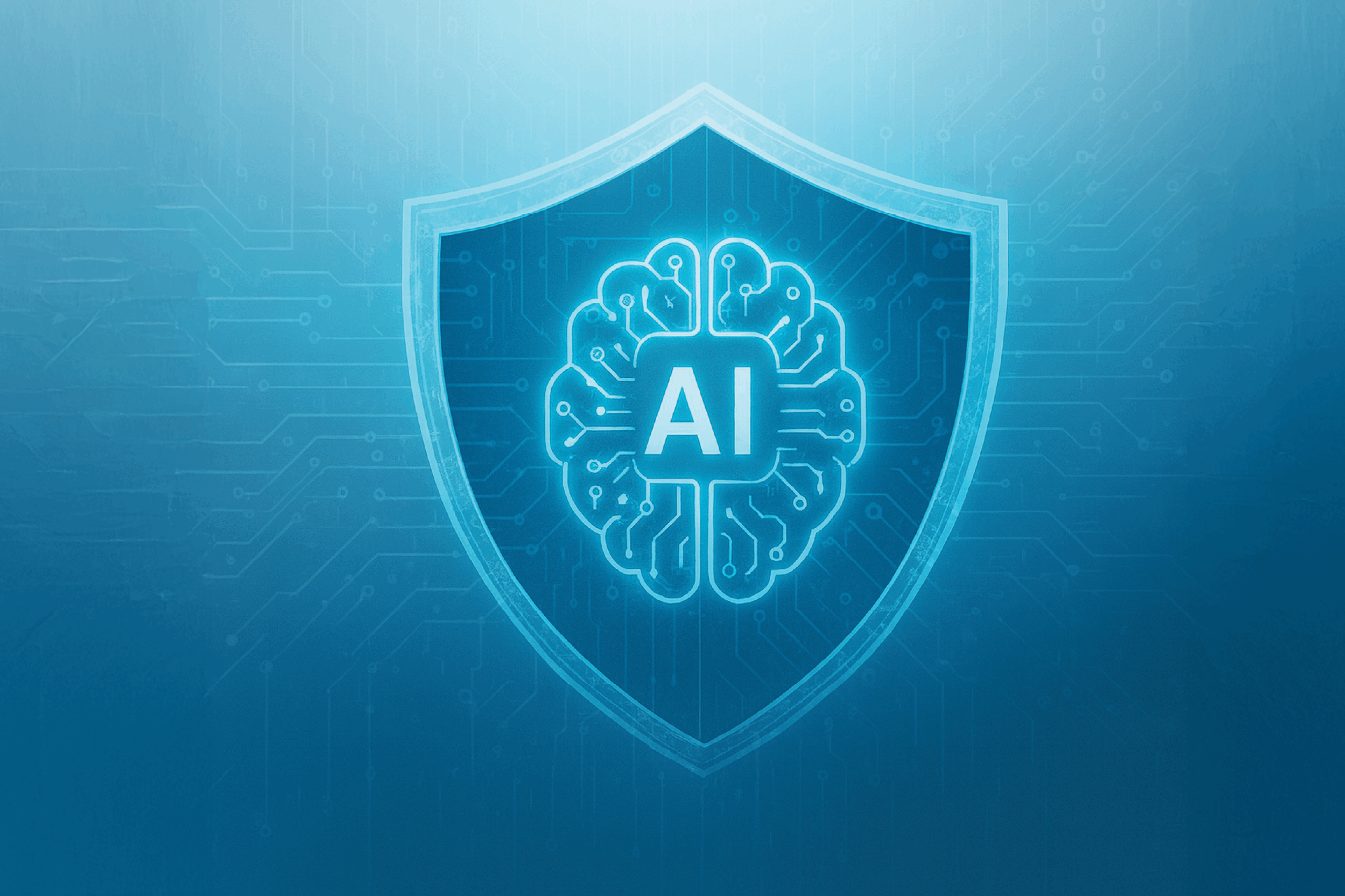Putting artificial intelligence & enabling technologies to work for healthcare
Artificial intelligence (AI) has the potential to enhance and improve both access and speed to information for many industries, including healthcare. This, along with process automation, can free up clinicians for direct patient care.
At its best, AI can positively impact clinical outcomes, empower the workforce, improve administrative and operational efficiencies, expand patient care capacity, and much more. This highlights the importance of responsible AI and human oversight.
While AI is transformative, it’s not perfect, Jennifer Golbeck, Ph.D., reminded us in a Q4 article in The Source. Goldbeck presented at 2024 HTU and has more than 20 years of experience with AI. “The idea of reducing the human presence in favor of AI is one that I hope we get past and instead move more toward asking how it can help us be more efficient,” she says.
As HealthTrust members evaluate solutions that involve protected patient and health system data, it is imperative that they:
- Understand how data flows in between systems and software—when looking at third-party vendor solutions—to ensure patient and care team data is protected
- Establish organizational guidance, governance and policies to navigate AI solutions
- Evaluate and mitigate potential risks ahead of time before implementing any solution—Just because you can use AI, doesn’t mean you should
- Keep in mind their facility’s medical equipment—understanding if AI is used in those devices is essential
- HealthTrust’s security information protection agreement (SIPA) with medical device suppliers is currently being amended to specifically address AI. (The Source will cover that in more detail in the Q4 edition. In the meantime, read more about HealthTrust’s security requirements for device suppliers here
Member case study

One HealthTrust member, HCA Healthcare, is currently assessing areas within patient care and hospital operations that could benefit from the vast potential of AI. “As an industry, healthcare is really just at the beginning of this AI journey,” says Michael Schlosser, M.D., MBA, Senior Vice President and Chief Transformation Officer of Digital Transformation & Innovation for HCA Healthcare. In 2021, HCA Healthcare formed Care Transformation & Innovation (now Digital Transformaion and Innovation, DT&I) to accelerate technology integration and address current and anticipated challenges. As the organization began moving to a centralized model with all digital, AI and machine-learning efforts governed by DT&I, the department evolved to meet this expanded mandate, benefiting all areas of the organization—clinical, operational and administrative.
Utilizing a cross-functional, team-based approach, DT&I operates with dedicated business and technology staff collaborating with experts from other areas of the organization to solve business challenges, using a variety of technologies and solutions.
To deliver results, DT&I embraces a domain-based approach. “By targeting domains, we strike the balance between tackling all organizational challenges that slow progress, and individual use cases or pilots that generate interest but have limited impact,” Dr. Schlosser shares.
Build, buy or partner?
As HCA Healthcare vetted solutions and suppliers that utilize AI, it became apparent that a responsible approach to AI needed to be established that outlined requirements for staff members who wanted to recommend a solution, as well as a governance process for rigorously vetting those suggestions and suppliers. This also led to developing guidelines and specifications for third parties who may or may not need access to specific proprietary data they might be requesting.

“When a business need is identified that utilizes AI, the DT&I team goes through a process to determine if it makes the most sense to build a solution, buy it or partner with a provider to obtain it,” says Michelle Grajales, the organization’s Director of Responsible AI Programs. “A rigorous vetting process helps us to understand the reason for implementing an AI solution. Just because we can make use of something, doesn’t mean we should.”
When looking at third-party vendors, Grajales says it is even more important to understand how data flows in between systems and software to make sure patient and care team data is protected at all costs. And, it’s not just at the enterprise level that it should be mapped out. Understanding AI use in equipment is essential, as many now include AI features.
Solving real-world challenges
One of DT&I’s objectives is to champion a more agile organization as it determines how best to harness innovation and use it to solve some of the day-to-day challenges that healthcare providers across the country face in today’s environment. Yet healthcare’s adoption pace often lags behind rapid tech advancement.
HealthTrust Member
HCA Healthcare
Focused on digital transformation & innovation to support:
- Providing clinical teams with data-driven actionable insights to inform patient care
- Reducing manual workload via advanced technologies & automation
- Improving outcomes with AI-powered personalized treatment planning
- Empowering staff with cutting-edge digital tools
- Expanding patient care capacity by freeing up clinical team time
- Boosting administrative efficiency through streamlined processes & digital solutions
DT&I has been able to leverage rapidly accelerating technologies like AI and machine learning to help create efficiencies in a number of areas, including documentation. In some cases, Dr. Schlosser says, “We can actually improve the quality of the data because we’re removing the manual variation that occurs when we ask individual caregivers to do this work. It’s a positive for patients as well since it enables caregivers more time at the bedside and less time spent on updating electronic health records.”
To enhance its agility, HCA Healthcare has established Innovation Hubs within two of its hospitals: UCF Lake Nona Hospital and TriStar Hendersonville Medical Center. Dr. Schlosser shares that these ‘laboratories’ find practicing physicians and nurses collaborating with DT&I and data scientists, technologists and staff from major supplier partners Google Cloud and Palantir. Clinicians help shape technology solutions in real time through their iterative feedback. DT&I partners with these technology companies to build solutions that can be tested within the Innovation Hub hospitals and fine-tune them to determine scalability across the enterprise.
Here are some examples of how HCA Healthcare is using AI and enabling technologies to transform patient care:
- A platform that automates care team scheduling
- A nurse-designed digital tool for more accurate, concise shift handoffs
- A state-of-the-art EHR system, used across care teams, to enhance patient care from admission through discharge
- Ambient listening solutions that automate the clinical documentation process
Thought leadership in AI
Members of the DT&I team are committed to knowledge-sharing with governing bodies as well as with peer health systems. “If others can learn from our journey, maybe they can skip a lot of the initial groundwork that we had to cover and start further down the path,” says Grajales.
Invited to speak at a number of industry meetings and before Congress on responsible AI in healthcare, Dr. Schlosser shares, “The work of the DT&I team has been recognized by government and private partners as leading the charge in determining how to do this AI work well. We are committed long-term to safely and responsibly deploying AI and other technologies to transform care delivery—benefiting HCA Healthcare as well as the larger healthcare industry.”
As healthcare professionals try to navigate the AI waters there is some reassurance in knowing that experts like Golbeck emphasize that AI will never truly replace humans. “lt was built to support humans as decision-support tools as opposed to autonomous systems that run themselves. Think more about how AI can help you gain efficiency.”
“If you’re an executive making decisions about AI, don’t let yourself be dazzled by the hype,” says Golbeck. “Look for the evidence and look to the skeptics. AI is going to change work and make us more efficient, but there is no evidence it will make us smarter.”
HOW ARE YOU USING AI within your facility or health system? Share your AI story with us for publication consideration at: thesource@healthtrustpg.com
Share Email AI, Automation, Machine learning, Operational efficiencies, Q3 2025, Responsible innovation, Transforming care delivery




